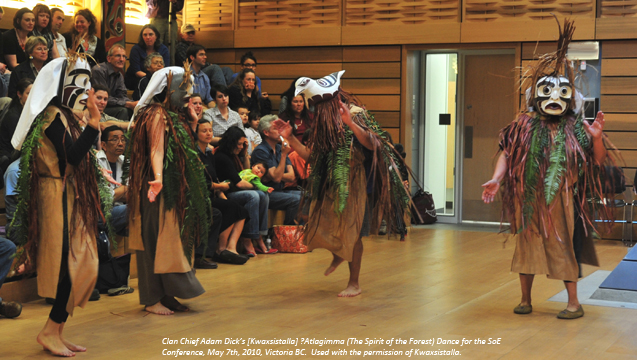Decolonizing Ethnobiology Resources
This page is a collection of materials compiled by members of the Society of Ethnobiology with the purpose of sharing ideas for moving toward an ethnobiology which prioritizes (1) power equity, (2) receptiveness to diverse ways of knowing, and (3) social justice.
The contributors are active in social justice and environmental work, and are dedicated to unravelling the colonial nature of research and work in settler nations and Indigenous communities. Ethnobiology as a discipline has a history of transcolonial legacies and even biocolonialism and biopiracy (especially 19th and early 20th Century economic botany that used ethnobotany with Indigenous communities to bioprospect for new medicines, crops, and commodities). As noted by one of our Distinguished Ethnobiologists, Gary Nabhan: "We would be remiss to ignore the blatantly colonial or imperialistic tone of some early ethnobotanical studies. They were explicitly undertaken to either a) learn what value could be extracted from another culture's natural resource base as crops, or b) learn how immigrants could take cues from native residents on how to make a living on their shared home ground, even as some of those immigrants usurped water and harvested native plants and wildlife from the homelands of the people that they were studying." (Here, Dr. Nabhan is referring to settlers when he uses the word "immigrants.")
Our purpose here is to provide resources that help people understand the colonial nature and inherited legacies that are throughout the fabric of the disciplines and knowledges we study, while consciously foregrounding tools and methods for relationship-building and decolonizing academia that may be vital for positive change. Please send any questions/comments and resource suggestions to socialmedia@ethnobiology.org

